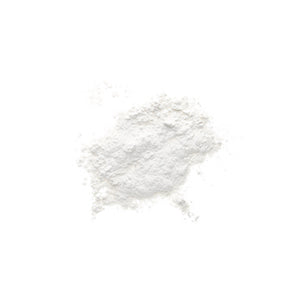
Betaine
BIO
Found In
Beet, spinach, broccoli, wheat bran, shellfish
Form
Betaine Anhydrous
Source
Betaine Anhydrous
Betaine is found in microorganisms, plants, and animals. It is also known as trimethylglycine. Humans can get it via foods that contain either betaine or choline-containing compounds. Betaine is present in foods in variable amounts that are generally related to growing and osmotic stress conditions. The physiologic function of betaine is either as an organic osmolyte to protect cells under stress or as a catabolic source to use in biochemical pathways (1).
KEY BENEFITS
- Osmoprotectant. Helps to maintain cell hydration & protect them against stress factors.
- Betaine helps to protect erythrocytes from extreme conditions (extreme temperature, salinity & humidity) by maintaining a balanced fluid environment inside and outside of cells.
- Promotes healthy homocysteine levels.
- Supports liver health.
Description
The major role of betaine in plants and microorganisms is to protect cells against osmotic inactivation. Exposure to drought, high salinity, or temperature stress triggers betaine synthesis in mitochondria. It results in its accumulation in the cells. Betaine acts as an osmolyte that increases the water retention of cells, replaces inorganic salts, and protects intracellular enzymes against osmotically-induced or temperature-induced inactivation
Betaine is an osmoprotectant. It protects our cells against dehydration by acting as an osmolyte, thereby increasing the water retention of cells. Some studies have indicated that Betaine may also reduce inflammation (2). Betaine safeguards cells against the detrimental effects of extreme temperature, salinity and humidity. Betaine insulates the cells and organs, and ensures that they are constantly receiving optimal hydration. Erythrocytes, the red blood cells that carry oxygen, are also protected by Betaine from extreme hydration imbalances. Erythrocytes are vulnerable to shriveling (due to dehydration) or bursting (due to excessive hydration), which can have a damaging effect on the oxygen supply to your muscles, brain and heart. Betaine shields erythrocytes from these extremes, by maintaining a balanced fluid environment inside and outside of cells.
Rehydration of cells
- Natural betaine assists with rehydration when mixed with electrolytes by restoring optimal fluid balance and transporting electrolytes and glucose to the muscle cells. Betaine assists hydration by protecting the cells from the stress that is put on cells when a muscle is overworked while in a state of dehydration (1.
Improves Strength
Betaine takes part in the methylation of homocysteine to form methionine. Methionine is important in the synthesis of creatine. Therefore a proposed mechanism of betaine, is its ability to improve strength and power, is by increasing creatine availability and enhancing muscle protein synthesis (3).
Lower homocysteine Levels
Increased homocysteine levels can increase the risk of cardiovascular disease, stroke, Alzheimer disease, dementia, neural tube defects, and other metabolic disorders. Betaine helps in lowering homocysteine levels.
The Unived difference
Betaine anhydrous is vegan and available in a highly absorbable, non-adulterated form. It doesn’t contain any unnecessary fillers.
Evidence-Based or Bust
We use ingredients backed by a significant body of research that is growing each day.
- Betaine in human nutrition
Craig S. A. (2004). Betaine in human nutrition. The American journal of clinical nutrition, 80(3), 539–549. - Dietary choline and betaine intakes in relation to concentrations of inflammatory markers in healthy adults: the ATTICA study
Detopoulou P, Panagiotakos DB, Antonopoulou S, Pitsavos C, Stefanadis C: Dietary choline and betaine intakes in relation to concentrations of inflammatory markers in healthy adults: the ATTICA study. Am J Clin Nutr 2008, 87:424-430. - Effects of betaine on body composition, performance, and homocysteine thiolactone
Cholewa, J. M., Wyszczelska-Rokiel, M., Glowacki, R., Jakubowski, H., Matthews, T., Wood, R., Craig, S. A., & Paolone, V. (2013). Effects of betaine on body composition, performance, and homocysteine thiolactone. Journal of the International Society of Sports Nutrition, 10(1), 39
8,995
Studies on Betaine and Counting
betaine is as an osmolyte and methyl donor (transmethylation). Betaine is being studied as a powerful and effective ergogenic aid in sports nutrition.
